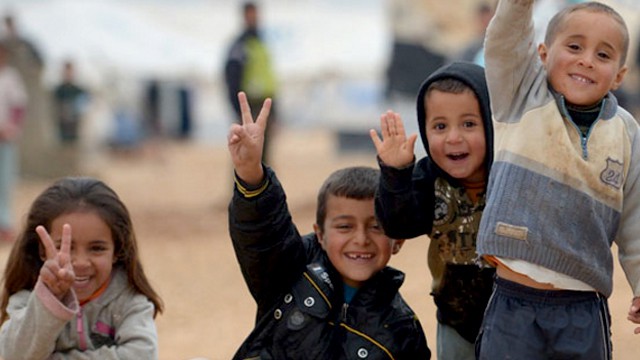How Mississauga is Helping Syrian Refugees
Published December 1, 2015 at 2:49 pm

The first wave Syrian refugees have made their way into Canada and Mississauga is ready to do its part to successfully resettle any who happen to call our city their new home.
According to a recent CBC article, 32 Syrians left Beirut, Lebanon for Toronto on Sunday night. While those numbers are small, Canada has pledged to house 25,000 refugees over the next few months. Initially, the plan was to resettle all the newcomers by the end of the year, but the deadline was extended due to fears of logistical challenges.
The discussion surrounding the incoming refugees has been fraught with controversy. Despite the fact that these people are fleeing a horrifically violent civil war, a sizeable number of Canadians have protested their imminent arrival, arguing that terrorists might be posing as refugees in order to carry out attacks in Canada. While there had always been some resistance to the resettlement plan, that resistance grew in the wake of the tragic terrorist attacks in Paris in November.
Now, even after extending the resettlement deadline to better process and screen newcomers, some reticence remains.
But that reticence won’t stop the refugees from arriving, nor will it stop cities from taking proactive steps to house them.
In terms of Mississauga, Mayor Bonnie Crombie’s office released a detailed press release last week outlining the city’s plan to welcome and settle any refugees who make their way into Mississauga.
“I applaud the federal government for taking responsible steps forward to help rescue 25,000 Syrian refugees. Let me reiterate the words of Immigration Minister John McCallum – we need to do this right. This undertaking is unprecedented and we are committed to working with the Trudeau and Wynne governments to achieve their targets of settling 25,000 new refugees – 10,000 of which will be in Ontario – and to ensure the safe arrival and integration of refugee families into their new home communities,” Crombie says in the release.
As for what the city is doing (or planning to do), the press release details the steps being taken to, as Crombie says, do things right.
Back in September, the mayor’s office held a Syrian Community Summit that was attended by community, religious and business leaders. The meeting spawned a partnership with Lifeline Syria and the creation of the Mississauga Lifeline Syria Fund, a fund that will provide grants to charities to cover the costs associated with sponsoring and settling refugees in Mississauga and other parts of the GTA.
In early November, the city carved out workspace for Lifeline Syria at City Hall to help the organization better process refugee applications and help sponsors move ahead with bringing families to the country. Later that month, Peel Council endorsed Crombie’s motion calling on the Region of Peel to develop a solid, official plan to properly accommodate the refugees. On December 10, City Hall will be hosting a Case Information Session for the Syrian-Canadian community to talk to them about the refugee application process, their responsibilities as Canadian contacts for the newcomers and what role they’ll play in helping new arrivals settle and integrate into the broader community.
The proactive approach is incredibly encouraging not just because it’s taking shape rather than being discussed endlessly amongst bureaucrats who are trying to appease everyone, but because it addresses fundamental adjustment issues.
While Canada — and Mississauga — will certainly be safer and more functional than today’s Syria, it will be different. The weather alone will be a challenge, as will the different customs, cultures and social mores. Being uprooted is scary and, sometimes, isolating. Everything from the food to the language to the culture is new and different. For that reason, it’s encouraging to know that the city has called upon the settled Syrian-Canadian community to help refugees adjust to Canadian society.
It’s also good that the city has treated this influx not as an inconvenience, but as an opportunity to show not just the best of Mississauga, but the best of Canada. These people are (in theory, at least) not going to be treated as a temporary problem, but new Canadians with much to learn and much to give to their new home.
If we’re welcoming and helpful, we’ll avoid isolating people who might be lonely, desperate or afraid.
So far, the city has set a good example.
Let’s hope the transition is as smooth as can be for everyone involved.
insauga's Editorial Standards and Policies advertising






